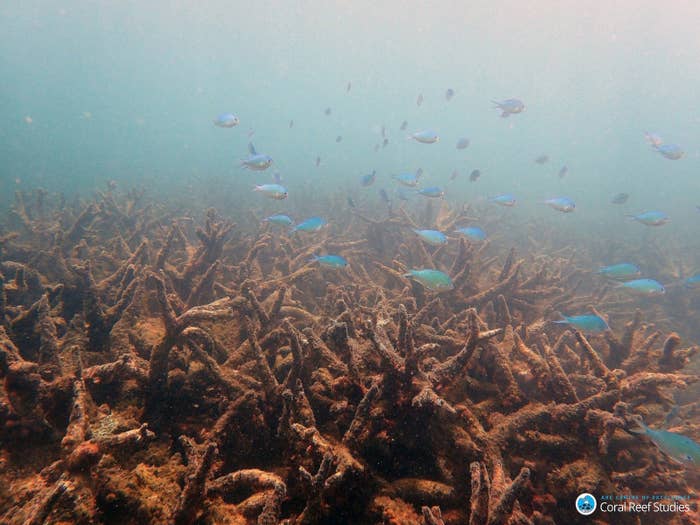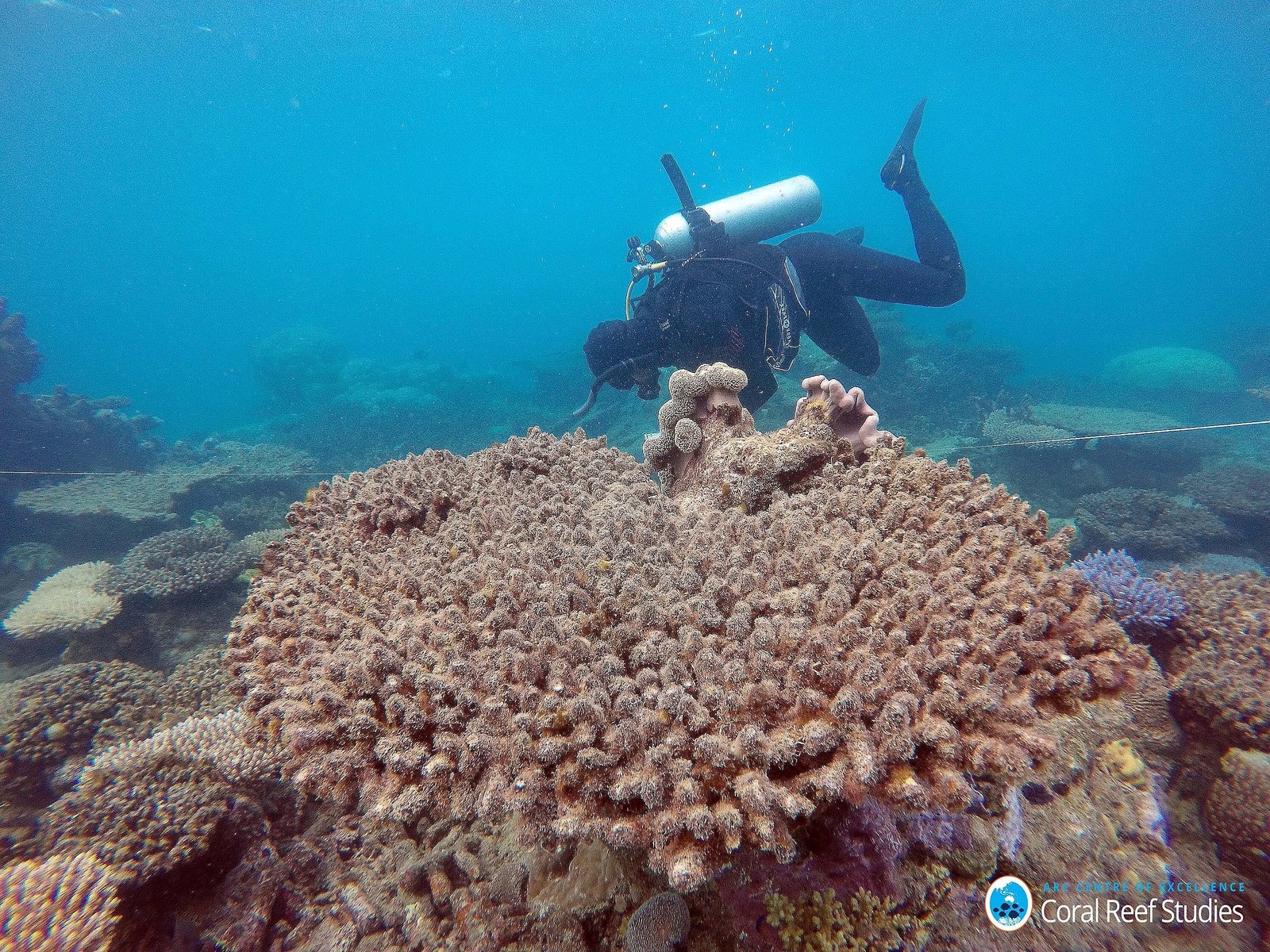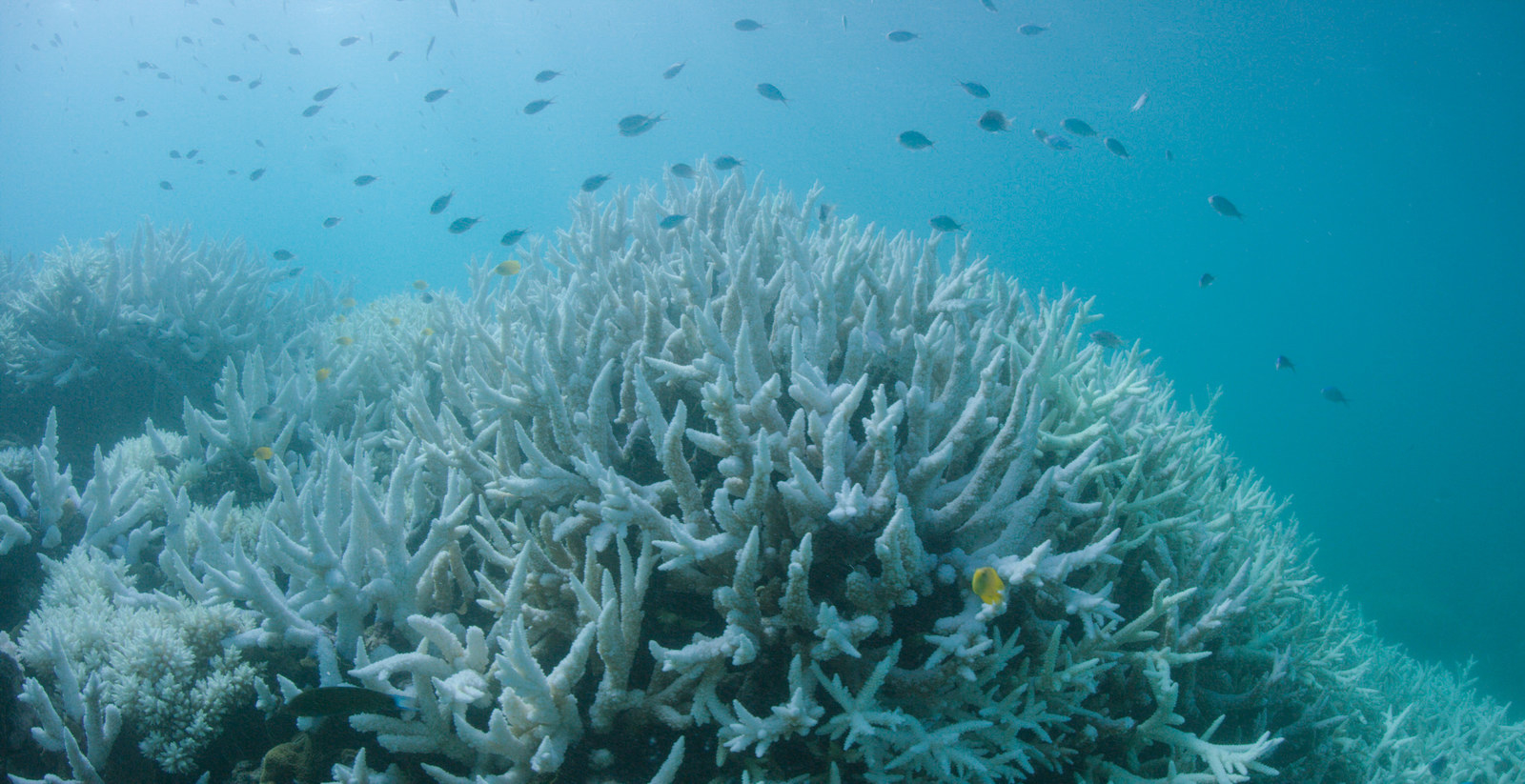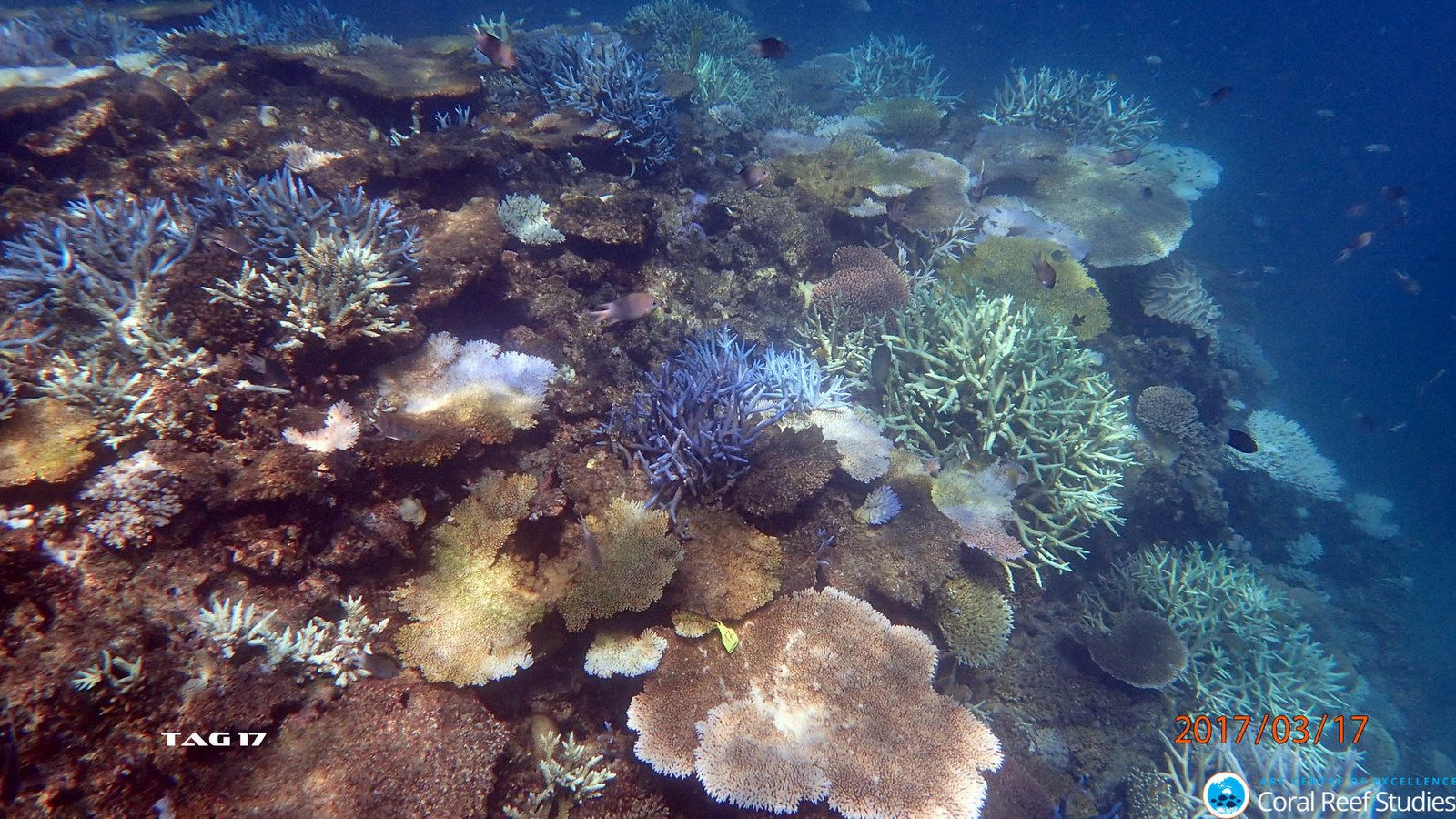Global coral reefs are being hit by more frequent and severe bleaching episodes than ever before, and the prospect of saving them is worse than ever, according to a new report by UNESCO.

The first ever global scientific assessment of the impact of climate change on coral reefs has found that under a "business as usual" approach to carbon emissions, in which nothing is done to tackle the changing climate, almost all of the planet's reefs will be beyond repair by the end of the century.
Under current emissions projections, in which global temperatures rise by between 2.5 and 4.3 degrees celsius, 14 of the world's 29 Heritage-protected coral reefs will experience severe bleaching twice per decade, limiting the ability to recover, the report finds.
Only by meeting the most ambitious targets of the Paris Climate Agreement and keeping warming to between 1.5 and 2 degrees celsius will many of the world's coral reefs be able to survive in the long-term, UNESCO said.

The planet is currently emerging from the third ever mass coral bleaching episode (1988-89, 2010), but the report finds that the frequency, intensity and duration of coral bleaching events is worsening as global warming intensifies.
Bleaching occurs when high water temperatures force corals to expel photosynthetic algae called zooxanthellae, turning the coral white. Up to half of corals on the world's largest living structure, Australia's Great Barrier Reef, have been killed by bleaching in the last two years.
The stark findings come ahead of the UNESCO World Heritage Committee's annual meeting, to be held in Poland in early July.

The report finds that local efforts to save coral reefs through improved water quality and land use management - such as Australia's Reef 2050 plan - are no longer enough to save reefs.
"For the first time, an ubiquitous global threat - heat stress sufficient to cause frequent severe bleaching and mortality - now threatens the [outstanding universal value] of world heritage sites in a way that cannot be resolved through local management alone," the report states.
Former director of the Great Barrier Reef Marine Park Authority, Jon Day, told BuzzFeed News the report is a wake up call for the Australian government, which only makes a cursory mention of climate change in its Reef 2050 plan.

"The report itself is quite depressing about the future of the world’s coral reefs," he said. "We’re not doing enough to ensure their long term sustainability."
Reefs are home to around one quarter of all fish species, and are worth $1 trillion to the global economy annually, according to the report.
"This is about more than just pretty coral reefs," Day said. "This is having an impact on subsistence fisheries and other livelihoods which people depend on. It’s a major concern, and it would be wonderful if the global community would take note of it and act on it."
Professor Terry Hughes, director of the ARC Centre of Excellence for Coral Reef Studies at James Cook University, said the Australian government is letting the world down by not managing the reef.

“The point in the report from UNSECO is that countries, like Australia, that are responsible for coral reefs, should be leading the charge and clearly that’s not the case currently," he told BuzzFeed News.
Hughes says that "business as usual" will mean the end of reefs as we know them, and the Australian government's support for the controversial Adani coal mine is one sign that it isn't taking the threat seriously.
If the mine was a country, it would be the world's 15th largest emitter, producing 60 million tonnes of coal a year. Hughes cites the mine's carbon emissions, as well as the fact the coal will be shipped through the Great Barrier Reef to India, as reasons not to go ahead with the mine.
"Shipping can introduce pollution, it can introduce pests, ship groundings, ship strikes on whales and dugongs, ship noise, pollution from coal dust, dredging... to argue that the mine, because it's 400km inland, won't affect the reef, is nonsense."
Australian environment minister Josh Frydenberg told BuzzFeed News it is "critical" that international efforts to combat climate change are successful.
As previously acknowledged by the World Heritage Committee, the Reef 2050 Plan is critical to boosting the Great Barrier Reef’s health and resilience in order for it to better deal with the effects of climate change and other pressures," he said.
"This is why Australian and Queensland governments are investing more than $2 billion over the coming decade in the Reef 2050 Plan. In addition, the Turnbull government’s commitment of $1 billion through the Clean Energy Finance Corporation is for projects specifically tackling climate change and water quality."
